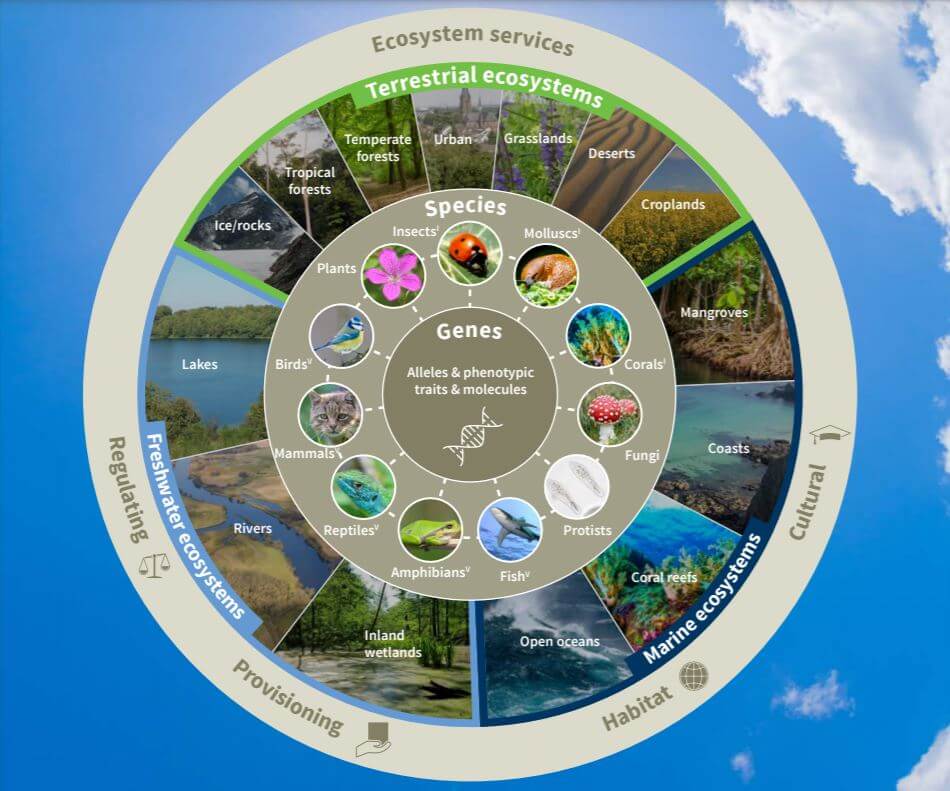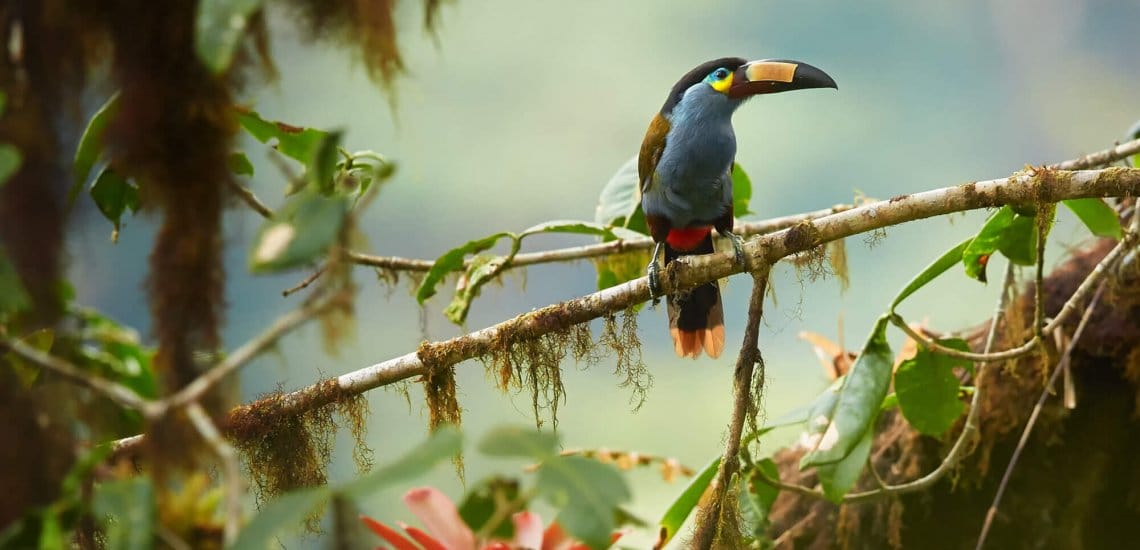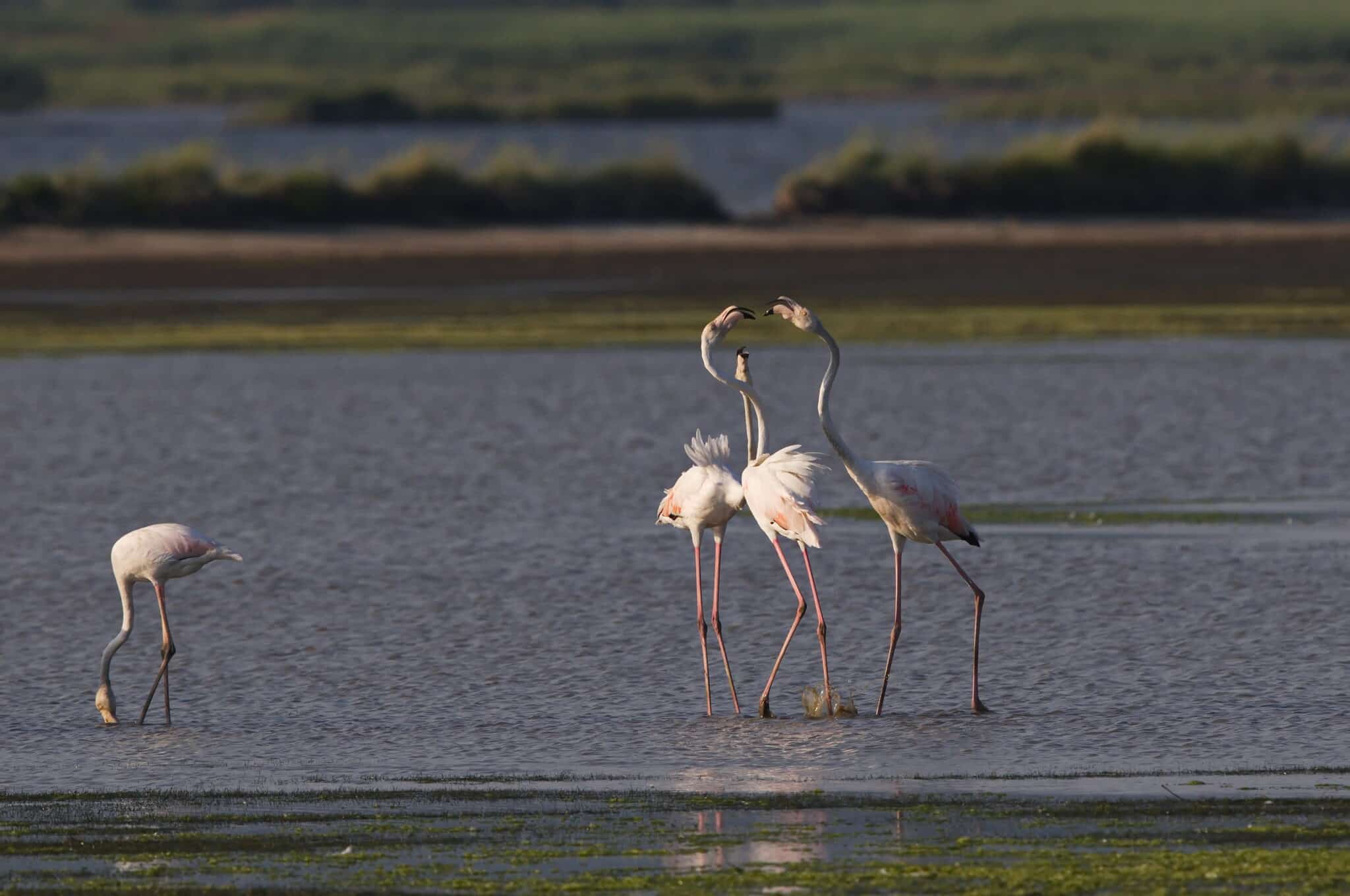Why a nature-positive economic system would benefit us all

Integrating nature into business decisions isn’t just good for the environment – it also benefits society and the economy. Here’s why the world should redirect financial flows away from nature destruction and ensure biodiversity is mainstreamed into business.
By Magdalene Trapp, Biodiversity Policy Officer, NABU (BirdLife in Germany)
Transformational change is needed within the systems that underpin our economies for them to benefit nature. In September 2020, NABU (BirdLife in Germany) and Boston Consulting Group published the report The Biodiversity Imperative for Business – Preserving the Foundations of our Wellbeing, which highlights that biodiversity provides over US $ 170 trillion in yearly benefits on top of its inherent value, and provides sector-specific recommendations for businesses to integrate biodiversity into their economic decisions and processes. Here are the main conclusions:
Biodiversity is the basis of human wellbeing and of our economic activities
Many of nature’s vital services, such as the pollination of crops, pest control, the provision of medicines, greenhouse gas sequestration, flood protection and air pollution control, directly depend on functioning and diverse ecosystems. A key finding of the study is that biodiversity provides a value of at least US $170-190 trillion per year – at least twice as much as the world’s gross domestic product (GDP). Sixty-five percent of this value is derived from the regulatory functions of ecosystems, such as CO2 regulation, waste recycling and avoiding erosion. However, this represents a lower bound as only a small part of biodiversity can be expressed in monetary terms. Values such as well-being or joy are difficult to quantify as they are perceived individually and can vary across cultures. On top of this, the intrinsic value of biodiversity – its own value beyond that which it provides to people – can hardly be given a price-tag.
Economic activities fuel global biodiversity decline. At the same time, they crucially depend on biodiversity and ecosystem services
Agriculture, forestry and fisheries, the expansion of infrastructure, raw material extraction and industrial production are the strongest contributors to the alarming loss of global biodiversity. They contribute via land use change, direct overexploitation of organisms, greenhouse gas emissions, pollution, and the spreading of invasive species. Production and consumption patterns fuel this development. Estimations show that in monetary terms we lose US $6-30 trillion per year due to biodiversity loss. At the same time, the added value of the agriculture, forestry and fishing sectors – currently being at US $3.5 trillion – depends to a large extent on ecosystem services and biodiversity. When we lose these nature’s services, the economy loses as well.

Transformational change is necessary to solve the planetary emergency. Biodiversity needs to be mainstreamed into all political decisions and economic processes
Systemic challenges require systemic solutions. An economic paradigm shift is necessary, in the course of which all stakeholders – governments, businesses and society – understand the protection of nature as a prerequisite for long-term success and wellbeing. Economic value creation needs to be in line with the conservation and restoration of biodiversity. Likewise, the impact of all political decisions on biodiversity needs to be assessed and considered. Governments, business and society need to act in concert to make the progress needed to achieve the new biodiversity targets and bend the curve of biodiversity loss.
This must be based on a landscape perspective: we need a well-connected network of protected areas which focus on key areas for biodiversity as well as integrated land use models to enhance biodiversity in production areas. The latter is characterised by diverse structures and space for nature, for example for trees, hedges or flowering areas from local seeds, by a large variety of cultivated plants as well as reduced pesticide and nutrient inputs. Joint action on nature and climate is also critical, requiring synergies between the biodiversity and climate agendas.
The time to act is now. Business as usual is not an option. It is clear what we need to do
The study provides a large number of recommendations for different stakeholders, making it clear that the time to act is now. Politicians have a responsibility to enable the necessary transformative change. They must implement clear rules and incentives to set the framework for the protection and restoration of biodiversity while ensuring transparency and fair competition. This ‘levels the playing field’ and thus enables the corporate sector and consumers as a whole to achieve the goal of nature-positive and climate-neutral production and consumption.
Companies themselves should also proactively and urgently integrate biodiversity issues into all economic decisions and processes, in a number of ways. They can collect and disclose data about their ecological footprint and commit to voluntary biodiversity standards. They can build up circular economies to reduce resource requirements and land use to a minimum. They can also get involved in nature restoration projects. And they not only have a responsibility to educate and inform their consumers, customers and employees about the impacts of their products on biodiversity, but will ultimately benefit from the ensuing demand for greener, environmentally sustainable products, as part of a new, nature-positive economy.
Related news
Stay up to date
Sign up to receive the latest bird conservation news. You’ll also receive updates about our projects, science and other ways to get involved including fundraising.
Thank you for your support, we are committed to protecting your personal information and privacy. For more information on how we use your data, please see our Privacy Policy. You can unsubscribe from emails at any time by using the link in the footer of any email from us.




